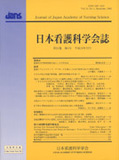Japanese
English
- 販売していません
- Abstract 文献概要
- 参考文献 Reference
- サイト内被引用 Cited by
要旨
本稿では,子どもの死の概念研究領域で偏重されているピアジェの認知アプローチを用いずに,解釈学的現象学(interpretive phenomenology)の見地から日本の学童がどのように生と死を把握しているのかを明らかにすることを目的として実施された研究の結果のうち,特に子どもたちの死と死後の世界観に焦点を絞って報告する.健康な16人の7歳から12歳までの日本の学童(女子7名・男子9名,平均年齢8.9歳,公立小学校生1名・キリスト教系小学校生15名)にお絵かきを含むインタビューを3回実施した.その結果,子どもたちは日本社会の汎神論信仰を反映して,さまざまな宗教観を融合させたユニークな死と死後の世界観をもっていることが判明した.子どもたちは生から死後までの包括的な考えを抱いているが,子どもたちはこの流れを2タイプ,すなわち直線的あるいは循環性のもの,に分けて把握していた.またそのどちらの場合でもキリスト教の神の存在が鍵となっていることが判明した.
Abstract
Among contemporary studies of children's notions of death, the cognitive approach, which applies formal properties of death based on an overreliance on Piagetian cognitive development theory, predominates. However, this does not explore what death means to children, or the extent of children's understanding of death. This study explores healthy Japanese children's lived experiences of grasping notions of life and death without predetermined components of death, such as finality, universality, and irreversibility. Interpretive phenomenology served as the philosophical underpinning and method of data analysis. A total of 16 healthy Japanese children (7 girls and 9 boys, mean age 8.9) were recruited through network sampling in the Tokyo area. Three interviews, each ranging from 15to 90minutes, were conducted with each child. Among the various emerging themes, this paper focused on the children's perception of death and afterlife. The study shows that Japanese children uniquely embraced the religiously incorporated view of death and the afterlife, reflecting the Japanese pantheistic belief system. The children had a comprehensive view of a flow from life through death to the afterlife, which constituted and consisted of the notions of life and death. In this successive flow, life and death were regarded as opposite yet connected. Although linear and circular types of flow from life to the afterlife were found in children's perceptions, in both cases the Christian God was perceived as the key.
Copyright © 2004, Japan Academy of Nursing Science. All rights reserved.


